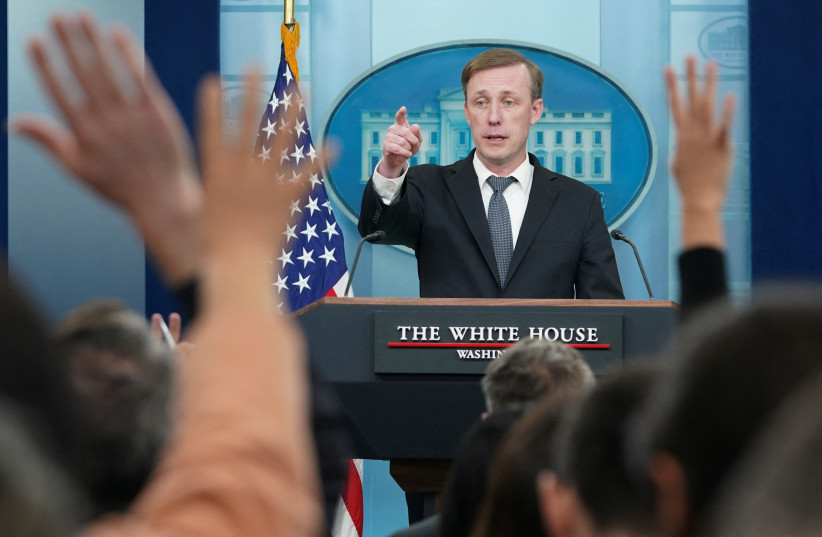Prime Minister Benjamin Netanyahu pushed back at the Biden administration’s red lines against a major Rafah military operation, insisting that Israel had no choice if it wanted to defeat Hamas.
“I emphasized to the president in our conversation, in the clearest way, that we are determined to complete the destruction of these [Hamas] battalions in Rafah.
“There is no way to do it other than the ground entrance,” Netanyahu told the Knesset’s Foreign Affairs and Defense Committee.
He spoke one day after his phone conversation with Biden, the first between the two leaders in over a month. It came amid a sharp debate between them over IDF plans for a major operation in Rafah, where over 1.3 million Gaza Palestinians are located. Many of them fled to the southern part of the enclave to escape the bombing in the north.
US National Security Advisor Jake Sullivan told reporters that during Biden’s talk with Netanyahu, the Israeli leader agreed to send a team of military and intelligence experts to Washington so the US could show them an alternative military plan for Rafah.

Netanyahu said he had agreed to this step out of respect for Biden, even though he understood that the US strategy was incorrect.
Israeli experts will head to Washington
On Tuesday, the Prime Minister’s Office appointed Strategic Affairs Minister Ron Dermer and National Security Advisor Tzachi Hanegbi to head the delegation that will meet with US officials. They will be joined by Israeli security officials.
White House spokesperson Karine Jean-Pierre said that the meeting would likely take place next week.
State Department Deputy Spokesperson Vedant Patel told reporters that the US approach would allow Israel to destroy Hamas through limited strikes rather than a major operation.
“We hope that we’ll be able to have an exchange of views and discuss an alternative approach that...will target the key elements of Hamas and secure the border [with Egypt] in the Rafah area,” without negatively impacting the more than a million people who are seeking refuge there, Patel said.
In Washington on Monday, Sullivan said Netanyahu had erred by insisting that those who were asking Israel not to launch a major military operation were asking it to lose the war.
Sullivan underscored in his comments to the press that the US agreed with Israel’s goal of defeating Hamas but thought it needed a different strategy.
“We have an argument with the Americans about the need to enter Rafah, not about the need to eliminate Hamas,” Netanyahu said.
This is a zero-sum game, Netanyahu added, explaining that if even 20 percent of Hamas terrorists are left in the enclave, they will reorganize and threaten Israel.
“This will be a victory for the greater axis that threatens us – the Iranian axis,” he stated.
Foreign Affairs and Defense Committee Chairman Yuli Edelstein posted on his Facebook page after the closed-door meeting that he, too, had warned that Iran could control Gaza unless a sane force was in charge.
“You don’t need to be the FADC chairman to understand this. If Iran controls the Gaza Strip, Iran will also control Jordan in a short time.
“This is a reality of tremendous existential threat that we simply cannot accept or live with. Israel will be surrounded on all its borders by Iran and its proxies. This will be the result of a terrorist state in Gaza, and this is an unacceptable reality,” he stated.
In the Philippines, Blinken said that he planned to head to Egypt and Saudi Arabia this week and that part of his conversations would focus on what should happen in Gaza once the war is over.
The Biden administration believes that in the future, Gaza should be part of a Palestinian state that would include the West Bank. It hopes to use the pause in the Gaza war to move forward on a normalization deal between Israel and Saudi Arabia that would include a pathway toward Palestinian statehood.
“We’ve also impressed upon Israel the imperative of having a plan for Gaza for when the conflict ends, which we hope will be as soon as possible,” he said.
